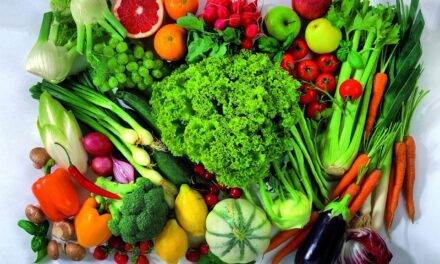Embarking on the journey of middle age is a beautiful and transformative experience. This phase of life, typically encompassing the 40s and 50s, brings unique challenges and opportunities, particularly regarding health and nutrition. In this comprehensive guide, we will explore the nutritional needs for middle-aged adults, providing insights and strategies to ensure that your diet supports your health, vitality, and wellness during these pivotal years. Nutrition in middle age is about more than just calorie counting or weight management; it’s about nourishing your body in a way that supports longevity, energy, and overall well-being.
The Changing Nutritional Landscape of Middle Age
As we enter our middle years, our bodies undergo significant changes that affect our nutritional requirements. Metabolism slows down, muscle mass may decrease, and the risk of chronic diseases such as heart disease, diabetes, and osteoporosis increases. There may also be changes in digestive efficiency, impacting how our bodies process and absorb nutrients. Understanding these changes is crucial in adapting our dietary habits to meet our evolving nutritional needs.
A well-balanced diet in middle age should focus on nutrient-dense foods that provide the necessary vitamins, minerals, and antioxidants to combat the signs of aging, boost energy levels, and reduce disease risk. This section will lay the groundwork for understanding the specific nutritional needs of middle-aged adults and how to address them effectively through diet.
As we delve deeper into this topic, our aim is to empower you with knowledge and practical tips to make informed dietary choices that enhance your health and quality of life in your 40s, 50s, and beyond.
Addressing Specific Nutritional Needs in Middle Age
For middle-aged adults, specific nutrients become particularly important. Here’s a breakdown of these key nutrients and how to incorporate them into your diet:
1. Protein: Sustaining Muscle Mass
With age, maintaining muscle mass becomes challenging due to natural muscle loss (sarcopenia). Adequate protein intake is essential. Opt for lean sources like chicken, fish, beans, and nuts. Plant-based proteins from legumes and tofu are also excellent choices.
2. Calcium and Vitamin D: Supporting Bone Health
The risk of osteoporosis increases with age, making calcium and vitamin D crucial. Dairy products, leafy greens, and fortified foods are excellent calcium sources, while vitamin D can be obtained from sunlight exposure, fatty fish, and supplements if necessary.
3. Fiber: Promoting Digestive Health
Fiber aids in digestion and prevents constipation, a common issue in middle age. Include plenty of fruits, vegetables, whole grains, and legumes in your diet to meet the fiber requirements.
4. Antioxidants: Combating Cellular Aging
Antioxidants fight against oxidative stress, a factor in aging and chronic disease development. Berries, nuts, dark chocolate, and green leafy vegetables are rich in antioxidants.
5. Healthy Fats: Enhancing Heart Health
Omega-3 fatty acids, found in fish, flaxseeds, and walnuts, are vital for heart health and brain function. Avocados and olive oil provide monounsaturated fats, which are also beneficial for heart health.
6. Water: Staying Hydrated
Hydration is crucial as the body’s ability to conserve water diminishes with age. Drinking adequate water aids in digestion, prevents constipation, and keeps the skin healthy.
Expert Insights on Nutrition for Middle-Aged Adults
Nutritionists and health experts emphasize the importance of a balanced diet tailored to the specific needs of middle age. They recommend regular health checkups to identify any nutritional deficiencies or health issues. Also, adapting portion sizes and caloric intake to match the reduced metabolic rate is crucial to prevent weight gain. Additionally, experts suggest mindful eating practices to enhance the overall quality of diet and promote a healthy relationship with food.
By integrating these expert insights and dietary strategies, middle-aged adults can effectively meet their nutritional needs, supporting a healthy, active, and fulfilling lifestyle.
Summary and Key Takeaways
As we conclude our in-depth look at the nutritional needs for middle-aged adults, let’s summarize the essential points and practical tips to help you navigate your dietary choices effectively during these transformative years:
Emphasizing Balanced Nutrition
Focus on a diet rich in protein, calcium, vitamin D, fiber, antioxidants, and healthy fats. These key nutrients play a crucial role in maintaining muscle mass, bone health, digestive wellness, cellular health, and heart function.
Adapting to Changing Metabolic Needs
Be mindful of the natural metabolic changes occurring in middle age. Adjusting portion sizes and caloric intake can help manage weight and overall health more effectively.
Staying Hydrated
Hydration remains a fundamental aspect of health. Ensure regular water intake to support bodily functions, including digestion and skin health.
Mindful Eating Practices
Adopt mindful eating habits. This approach helps in making more conscious food choices, enjoying meals, and recognizing hunger and fullness cues.
Consulting with Health Experts
Regular check-ups and consultations with nutrition and health professionals can provide personalized advice and help address any specific dietary needs or health concerns.
Final Thoughts
By embracing these nutritional strategies, middle-aged adults can enjoy a vibrant, energetic, and healthy lifestyle. Nutrition is a powerful tool that, when used wisely, can significantly enhance your well-being in the prime years of life.








